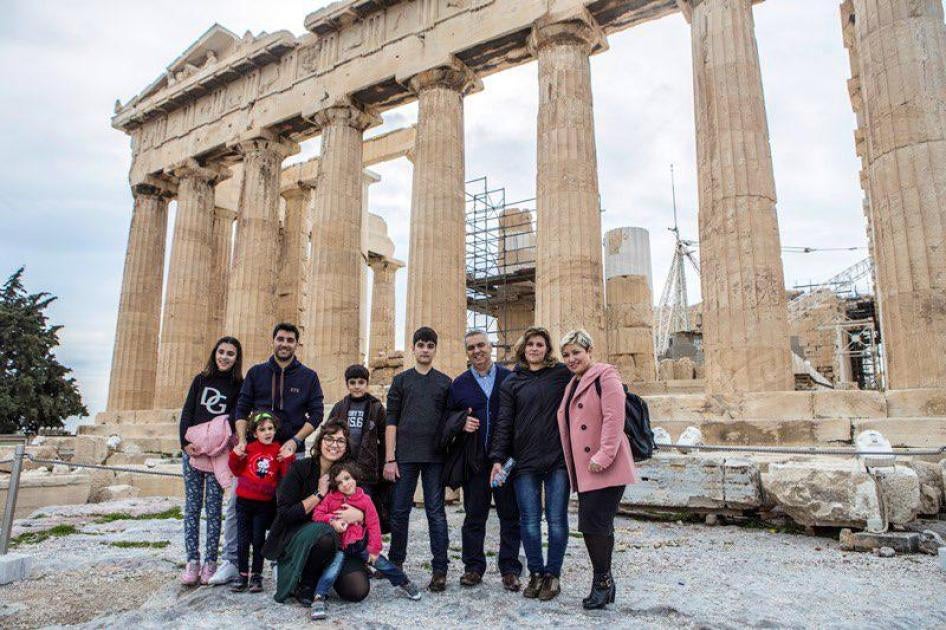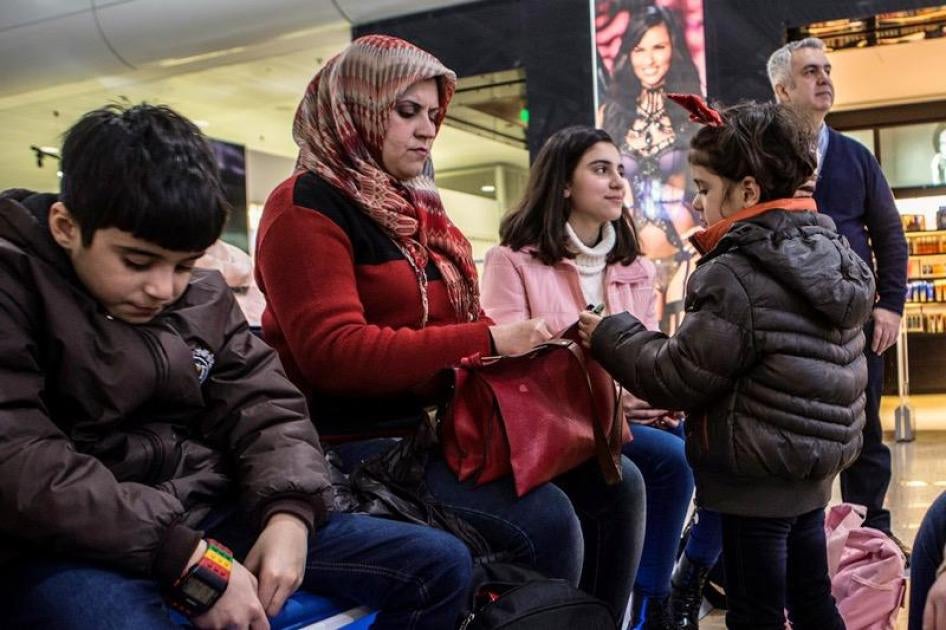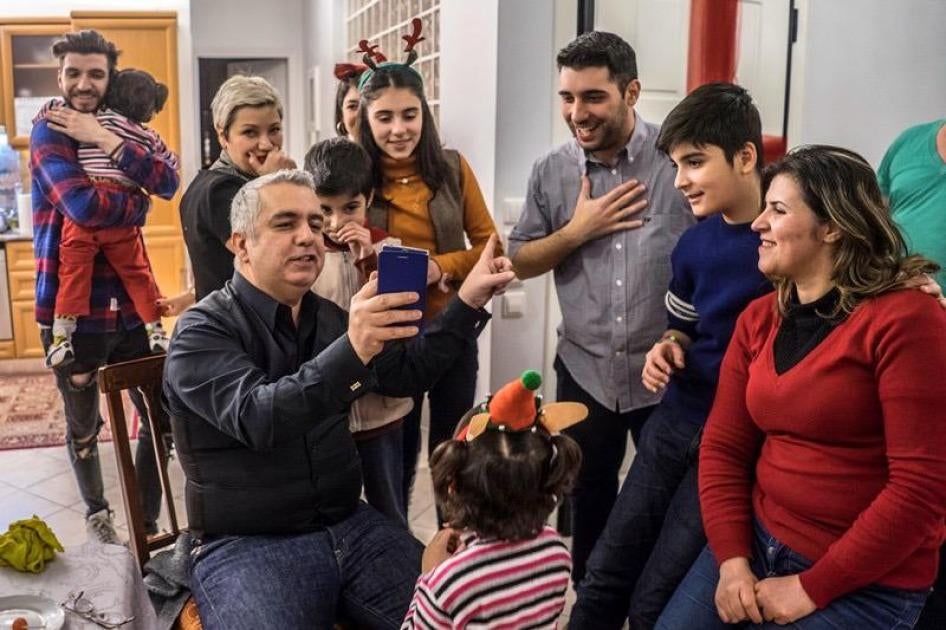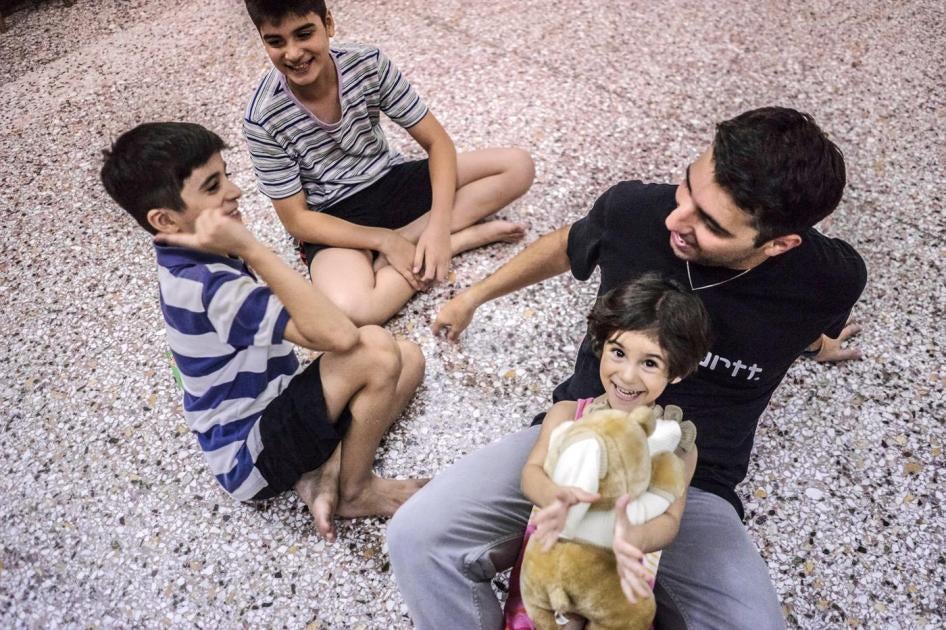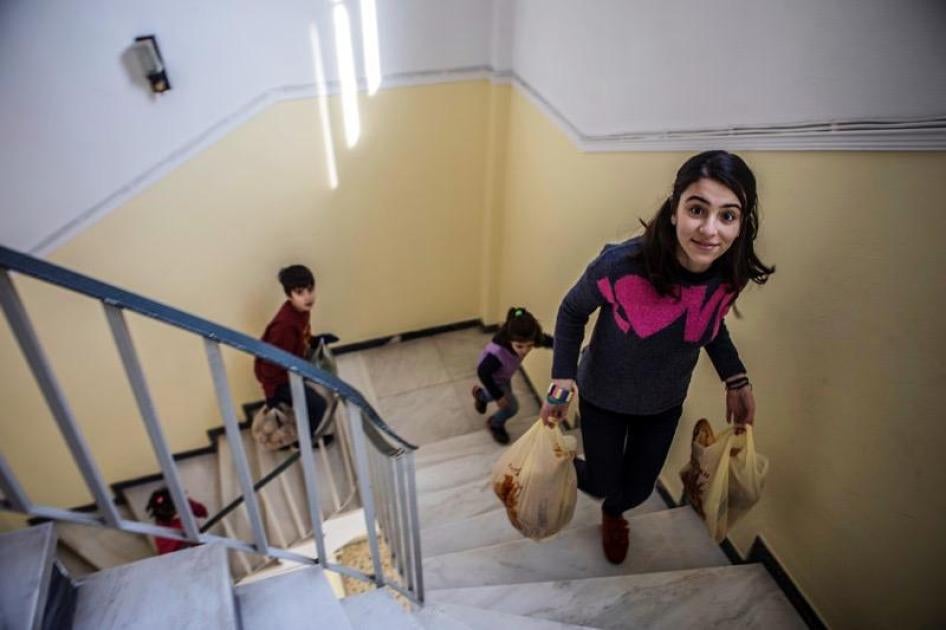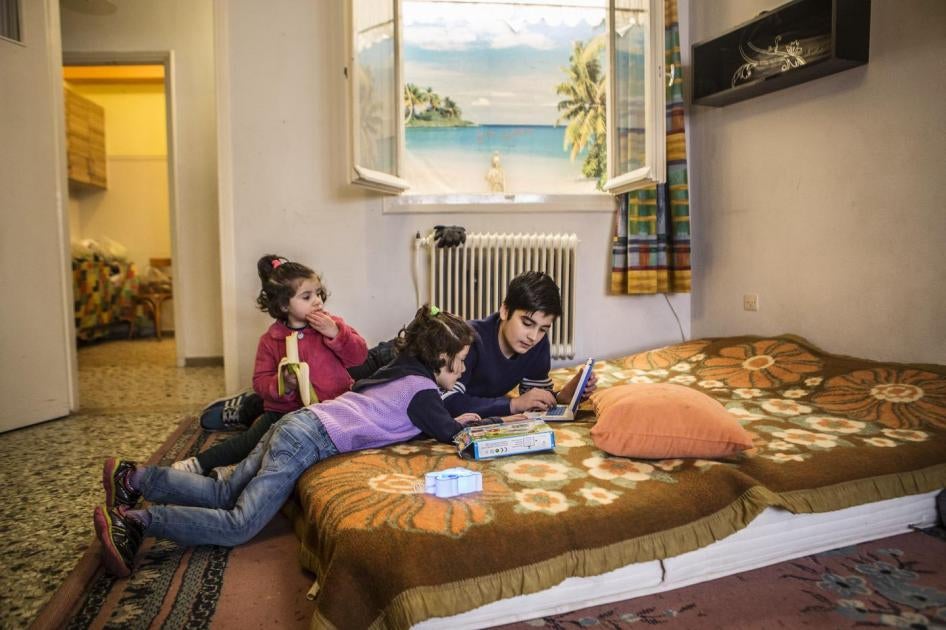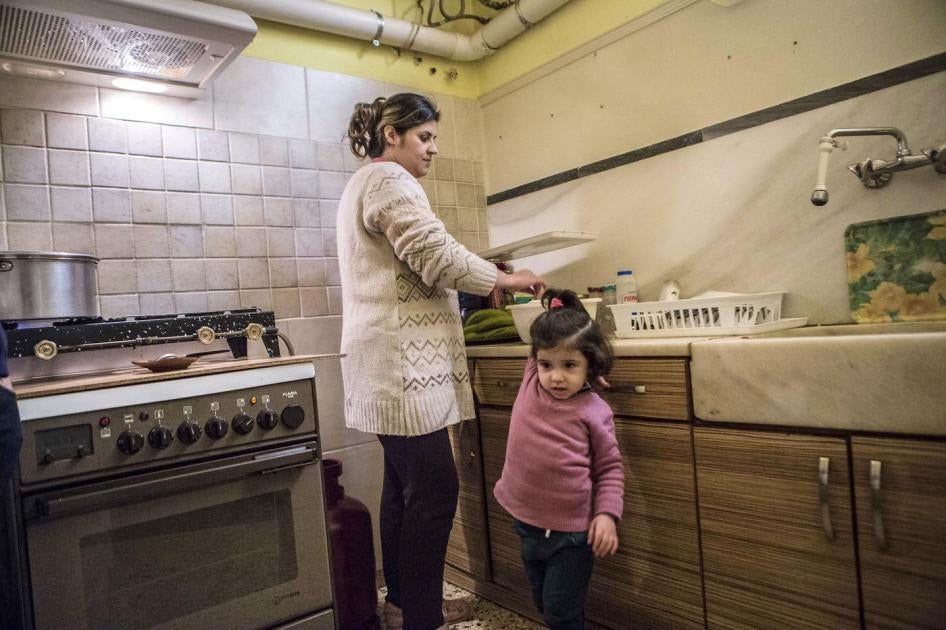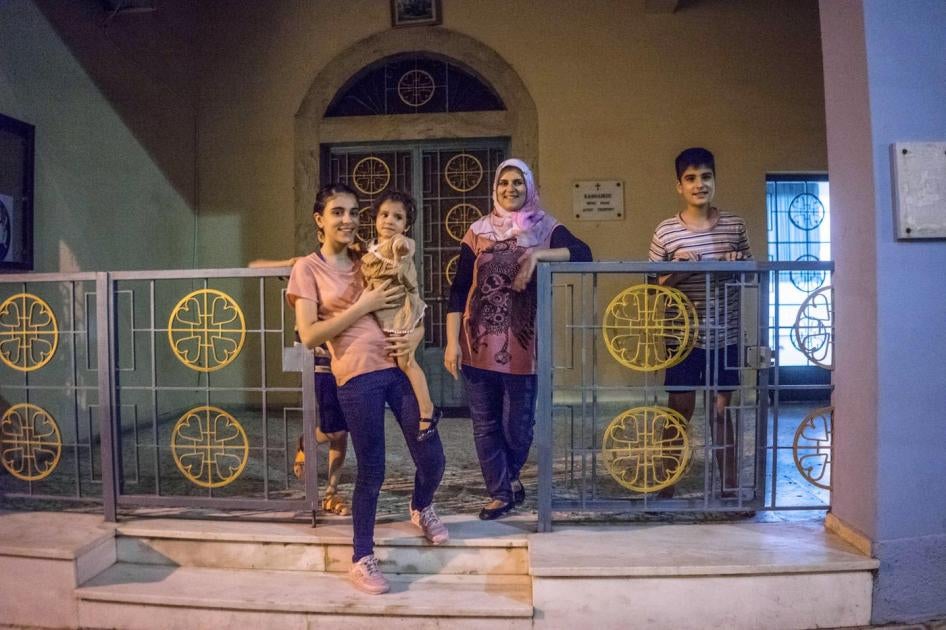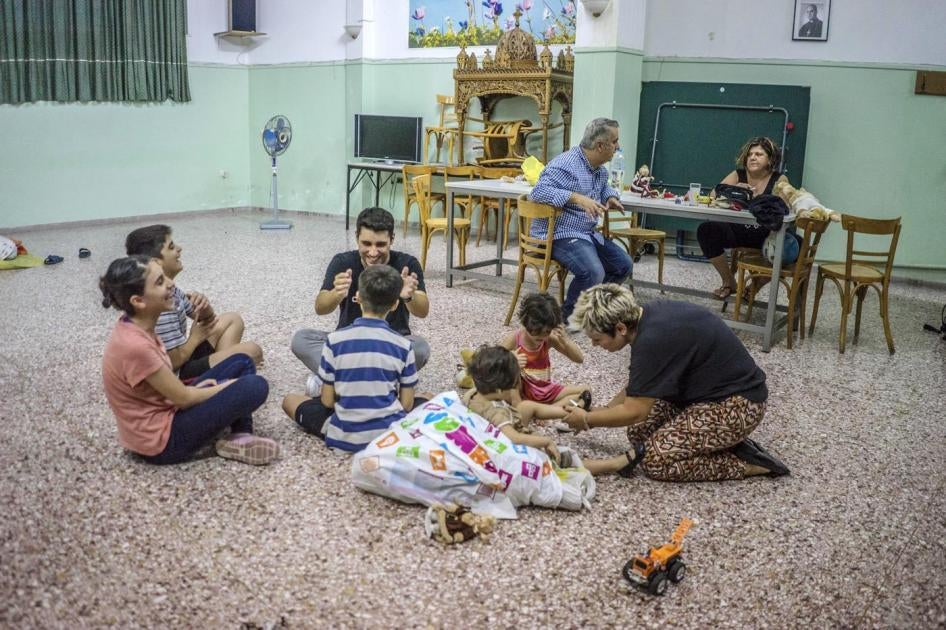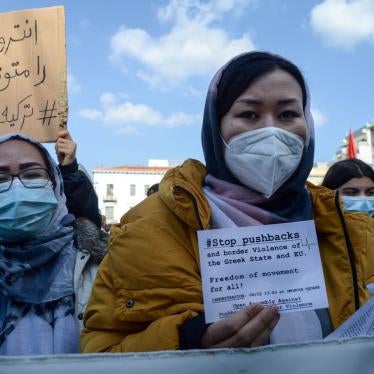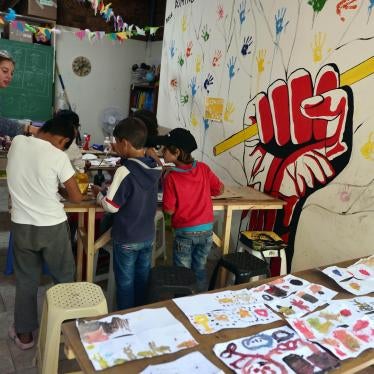For the families, this moment is a milestone marking the end of a year-long journey. Family separation – with all its risks, inherent or magnified by the circumstances that surround it – is finally close to being over.
Separation under the best circumstances means being cut off from the emotional support and protection of your family. For families who have fled war and are in an unfamiliar place with limited access to safety and meager economic resources, it can mean fighting for survival.
Falak, a 38-year-old Syrian mother of five children under 13, did not sleep last night.
This is the day she has been waiting for. She and her children are finally flying to Dusseldorf, where she will reunite with her husband, Mohammed, who is already living in Germany. He obtained refugee status there in 2015. After nearly two years apart, only three-and-a-half more hours separate the family.
They had fled persecution and war in their home city of Aleppo, a name that has become synonymous with “battleground” in the Syrian conflict.
“Syria was a great country to live in before the war,” Mohammed said. Before the war, he was a textile worker with a steady monthly salary. They did not take the decision to leave lightly. “Obviously, this was the most difficult period of our lives.”
Initially, the family relocated to another town inside Syria, where they hoped they would be safe. Then Mohammed struck out to find a possible place for his family in Europe.
Falak and the children remained in the new town for the first year of Mohammed’s journey, hoping to obtain passports and make a carefully planned journey. But their new home was becoming “less secure by the day,” Mohammed said.
They gave up hope that the fighting would pass or that they could get their passports, and the family fled in February 2016.
Falak, her three daughters and two sons made a perilous passage to Europe, traveling from Syria to Greece. “I never thought I could do something like this,” she sad. “I wasn’t a strong person before – I was very cowardly.”
As thousands of others made the journey at that time, Falak said, “I was alone, I didn’t have anyone to help me.
“When we got into the boat we were very scared and cold. We stayed three-and-a-half hours in the middle of the sea inside a dinghy [which had started to fill] with water and with a broken engine,” she said. “The Greek coast guard saw us and escorted us to the shore.”
Falak and the children arrived on the Greek island of Lesbos in early March 2016. They were transferred to Athens, where they rented a house with a few women who were traveling together.
“We were 30 people in a one-bedroom house. The person who provided us the house charged every mother 200 euros for nine days,” Falak said. “This was my last money and my last hope … [but] after nine days the person who was responsible for the house told me I had to leave.”
With just eight euros left in her pocket, she went to the Caritas charity, which found accommodation for her and her children in a neighborhood Catholic church in the western suburbs of Athens. Father Martin, the parish priest, took them in.
She remembered the first night at the apartment Father Martin found for them: “I was so scared that I closed all the doors and I was constantly holding my children together. I was afraid that someone would come and take them away. Throughout the journey no one helped us so I couldn’t trust anyone.”
In addition to providing housing, the church community also started to support them in other ways.
Sperantza and Dominique Osana, the mother and father of an Iraqi-Greek family who belong to the local Catholic community, started visiting Falak’s family regularly.
Dominique, who came to Greece 25 years ago as a refugee himself, was touched by the family’s situation. “They became a part of our family. Every Sunday we would meet, go for a walk or for food together,” he said. “It’s been 11 months that we have had them near us. The whole community loved them and they contributed to their support.”
Once they were settled with help from Caritas, Dominique and Father Martin, Falak submitted an application for family reunification to the German embassy in Athens. German officials contacted Mohammed and confirmed that he would accept them.
The last day in Athens was emotional. The two families took a stroll around Athens city center. That evening, Falak packed their belongings from the apartment with the help of her eldest daughter, Lava. Later, the Osana family came for one last visit before taking them to the airport.
